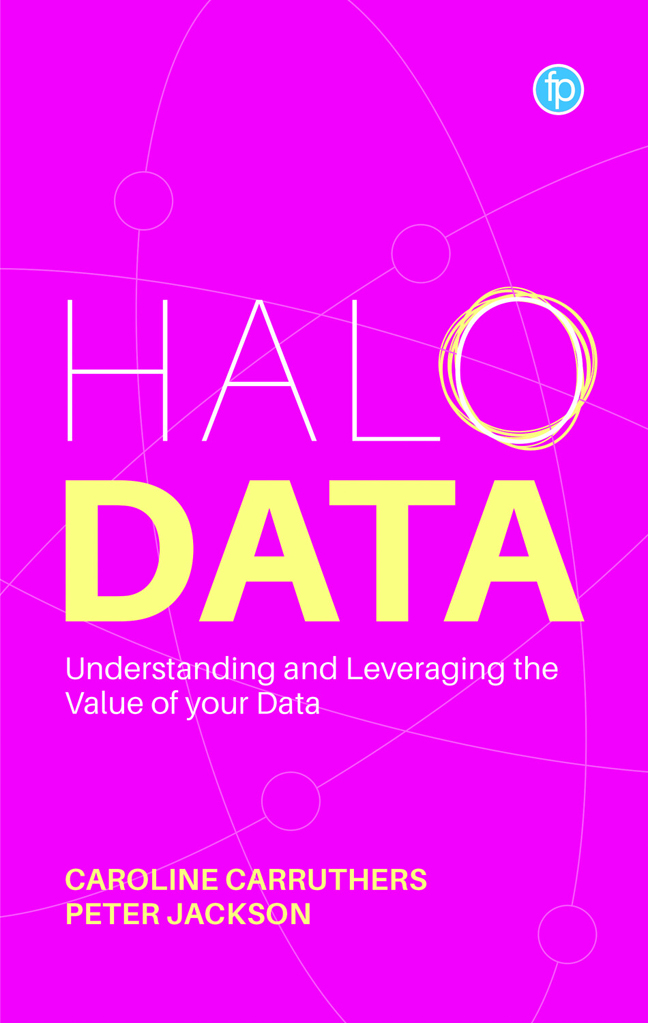Book contents
- Frontmatter
- Dedication
- Contents
- Figures and Tables
- About the Authors
- Acknowledgements
- Introduction
- 1 Who Owns the Definitions and Terms about Data?
- 2 What is Metadata?
- 3 Other Ideas of Data Value and Monetisation
- 4 Value from a Different Source
- 5 Hello Halo Data
- 6 Getting to Know Halo Data
- 7 Early Examples of Halo Data Approaches
- 8 Halo Data and Data Ethics
- 9 Halo Data Framework
- 10 Halo Data Applied Risk Assessment, Regulation, Customer, the Citizen
- 11 Halo Data and Storytelling
- Conclusion
- Index
1 - Who Owns the Definitions and Terms about Data?
Published online by Cambridge University Press: 17 December 2023
- Frontmatter
- Dedication
- Contents
- Figures and Tables
- About the Authors
- Acknowledgements
- Introduction
- 1 Who Owns the Definitions and Terms about Data?
- 2 What is Metadata?
- 3 Other Ideas of Data Value and Monetisation
- 4 Value from a Different Source
- 5 Hello Halo Data
- 6 Getting to Know Halo Data
- 7 Early Examples of Halo Data Approaches
- 8 Halo Data and Data Ethics
- 9 Halo Data Framework
- 10 Halo Data Applied Risk Assessment, Regulation, Customer, the Citizen
- 11 Halo Data and Storytelling
- Conclusion
- Index
Summary
What was happening before data professionals arrived?
Until recently IT (information technology) has owned the ‘data terminology’. With the rise of the CDO (chief data officer) and organisations wanting to increase the value they derive from their data, we need to think about data in new ways. Data is now a discipline in its own right outside of IT; it is growing up, but isn't yet fully mature. Huge technological steps have been taken, but some fundamental thinking has been omitted. People are trying to organise and govern their data, but they are struggling to get or identify a Return on Investment (RoI) on that activity and to truly release the value of data. We need to find a way to accelerate data science and analytics so that we’re not just looking at their potential but have realised their benefits which will allow organisations to do more with data for less cost.
No doubt we all still read many articles and posts about data, and hear the data community discussing the problems encountered and created by data being a subset of the technology domain within organisations. This is a constant and ongoing discussion that has a commonality across vertical markets and geographies. Even if the data team aren't actually a subset within an organisation's IT department, in many cases that perception exists; and even if it doesn’t, many problems may persist, due to data having previously been a subset of the tech - nology domain. What do we mean by ‘being a subset of technology’? We mean that essentially the CDO reports up to the CIO (chief information officer) or CTO (chief technology officer) or that data was part of the IT or technology teams reporting to the CIO. Even if the reporting lines aren't hierarchical and the CDO sits alongside the CIO/CTO, this sustains the perception of a subset.
We have been calling out this issue for a long time; indeed we wrote about it in our first book, The Chief Data Officer's Playbook, in 2017. At the risk of covering some of that ground again it is worth repeating a few points. If the CTO and the use of technology were going to ‘crack the data problem’ and ‘leverage the power of data’ then surely, after decades of the CTO/CIO role being established in organisations, this would have been achieved by now?
- Type
- Chapter
- Information
- Halo DataUnderstanding and Leveraging the Value of your Data, pp. 1 - 10Publisher: FacetPrint publication year: 2023

